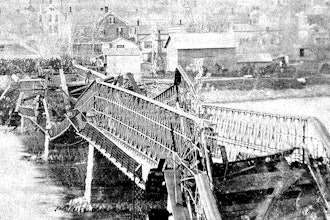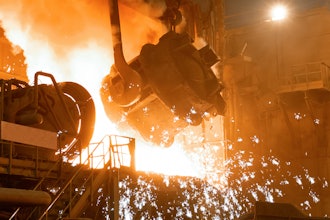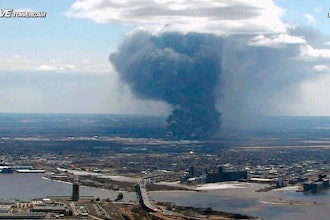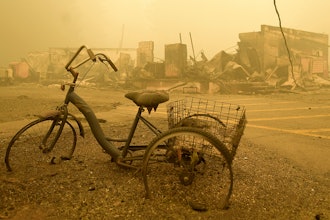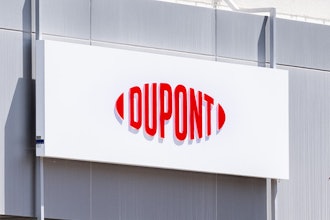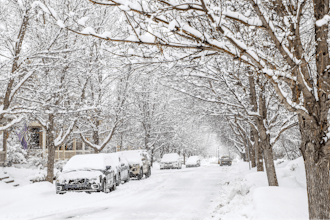
HOUSTON (AP) — A company that owns a suburban Houston chemical plant jeopardized public safety when it failed to remove dangerous chemicals ahead of Hurricane Harvey in 2017, resulting in a blaze that sent toxic smoke into the air and injured first responders, prosecutors told jurors on Thursday.
Arkema Inc., a subsidiary of a French chemical manufacturer, and three of its senior employees are on trial over charges accusing them of releasing toxic pollutants and injuring two sheriff’s deputies.
During opening statements, Michael Doyle, a special prosecutor assigned to the case, told jurors that Arkema and the workers on trial ignored every red flag to move the organic peroxides manufactured at the facility as Harvey’s potential dangers became apparent. Harvey dumped nearly 50 inches (127 centimeters) of rain in parts of the Houston area and caused 36 deaths locally.
The organic peroxides, used to make such things as plastic resins, are volatile and can combust if not kept at temperatures at or near freezing. If it burns and its toxic gases are inhaled, this can cause lung damage or even death.
“They left this hazardous chemical deliberately unprotected,” Doyle said.
He said Arkema’s actions were part of a long pattern of reckless behavior in which the company had never removed organic peroxides from the plant in the face of dangerous hurricanes and other storms during the facility’s more than 50 year history.
During Harvey, the organic peroxides were instead stored inside refrigerated trailers at the plant, located just northeast of Houston. But some of the trailers lost power after the plant was overwhelmed by flood waters.
Doyle told jurors Arkema didn’t let authorities know they weren’t able to remotely monitor some of the trailers and keep track of the chemical’s temperature. Two deputies were injured after going into a toxic cloud released when one of the trailers burned after the chemical combusted, he said.
The fire also forced the evacuation of more than 200 residents and sent 21 people to the hospital.
Letitia Quinones, one of the attorneys for Pennsylvania-based Arkema, told jurors the company had safeguards and equipment in place which had worked during the previous 20 storms that had impacted the plant and there had never been any serious problems.
Arkema believed it was safer to keep the chemicals at the plant, where they could be safely monitored, instead of on roadways during a pending hurricane, she said.
“No one knew how devastating Hurricane Harvey was going to be on the city on Houston. No one,” Quinones said, echoing Arkema’s long held defense that the fire wasn't criminal as it was caused by a natural disaster.
Quinones said Arkema fully cooperated with authorities and shared all information about what was going on at the plant during Harvey, including that some of refrigerated trailers storing the organic peroxides couldn't be monitored and were likely going to combust. Quinones suggested the deputies who were injured were at fault for what happened to them because they didn't stay out of an evacuation zone that had been set up around the plant.
“There is nobody more sorry for the events that occurred ... than my client. But the mere fact it happened on his watch does not make him a criminal," said Tim Johnson, an attorney for Arkema CEO Richard Rowe, one of the three company employees on trial.
Opening statements were stopped Thursday afternoon because the courthouse was shut down early after a water main break earlier in the day impacted Houston's water supply. It was not immediately known if opening statements would resume on Friday or Monday.
Arkema, Rowe and ex-plant manager Leslie Comardelle are all charged with reckless emission of an air contaminant. If convicted, Arkema faces up to a $1 million fine while Rowe and Comardelle each faces up to five years in prison.
In addition, Arkema and its now retired vice president of logistics, Michael Keough, face a felony assault charge related to the injured deputies. If convicted, the company could be fined up to $10,000 and Keough could face up to 10 years in prison.
The U.S Chemical Safety Board said Arkema worked to keep equipment that stabilized its organic peroxides, used to make such things as plastic resins, from losing power. But Arkema didn’t consider flooding of safety systems “a credible risk,” even though the plant was inside flood zones.
The trial could last up to six weeks.
Opening statements were delayed three days after Judge Belinda Hill sanctioned prosecutors on Monday for withholding evidence that could be beneficial to the defense.









